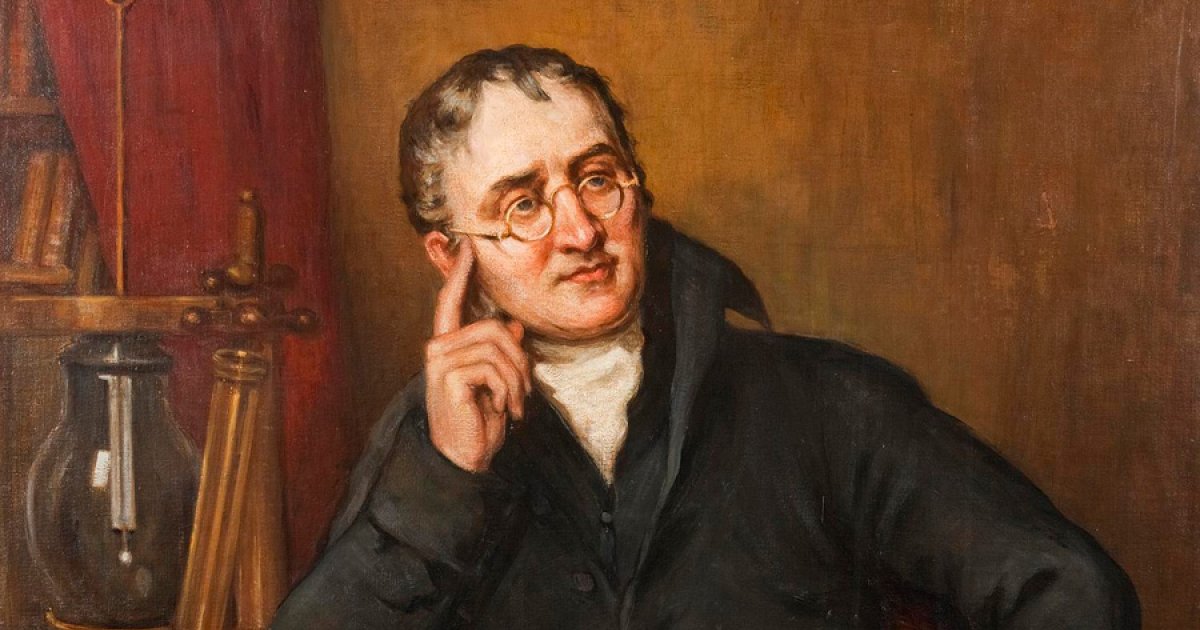
John Dalton, a name that holds significant importance in the world of science and chemistry. Known as the father of modern atomic theory, Dalton made groundbreaking contributions that revolutionized our understanding of the building blocks of matter. His work laid the foundation for the field of physical chemistry, and his theories continue to shape scientific research and experimentation to this day.
In this article, we will delve into the life and achievements of John Dalton, unraveling some truly astonishing facts that you may not have known about this remarkable scientist. From his early education to his discoveries in the realm of chemistry and meteorology, we will explore Dalton’s journey and the lasting impact he has had on the scientific community.
So, buckle up and get ready to be amazed by these 16 unbelievable facts about John Dalton!
Key Takeaways:
- John Dalton, a colorblind Quaker with a speech impediment, revolutionized science with his atomic theory, influencing the periodic table and inspiring future scientists.
- Despite his challenges, Dalton’s meticulous research on gas laws and meteorology, along with his dedication to teaching, left an enduring legacy in the world of science.
John Dalton was born in a small village in England.
John Dalton, the renowned chemist and physicist, was born in Eaglesfield, Cumberland, England in the year His humble beginnings in a rural village in the north of England would shape the course of his extraordinary life.
Dalton was recognized for his groundbreaking work on atomic theory.
One of Dalton’s most significant contributions to the field of science was his development of atomic theory. His theory proposed that all matter is made up of indivisible particles called atoms, each with its own unique properties and mass.
Dalton was colorblind.
An interesting fact about Dalton is that he had a rare form of color blindness known as deuteranopia, which affected his perception of green and red colors. Despite his color blindness, he was able to make significant advancements in various scientific disciplines.
Dalton was a Quaker.
John Dalton belonged to the Society of Friends, commonly known as the Quakers. His religious beliefs and upbringing played a significant role in shaping his character, values, and contributions to society.
Dalton suffered from a speech impediment.
Throughout his life, Dalton struggled with a speech impediment that affected his communication abilities. Despite this challenge, he was able to overcome it and communicate his scientific ideas effectively.
Dalton’s work influenced future scientists.
Dalton’s groundbreaking work on atomic theory and his contributions to various scientific disciplines paved the way for future scientists. His theories and research laid the foundation for further discoveries in the field of chemistry and physics.
Dalton was a teacher and mentor.
In addition to his scientific pursuits, Dalton also dedicated a considerable part of his life to teaching and mentoring. He served as a teacher at various educational institutions, imparting his knowledge and inspiring young minds.
Dalton published numerous scientific papers.
Throughout his career, Dalton published a significant number of scientific papers on a wide range of topics. His comprehensive research and extensive documentation contributed to the advancement of scientific knowledge.
Dalton’s work on gas laws was groundbreaking.
Dalton made significant contributions to the understanding of gas behavior and the formulation of gas laws. His research on the properties and behavior of gases laid the foundation for the development of the modern gas laws that we study today.
Dalton’s atomic theory was initially met with skepticism.
When Dalton first proposed his atomic theory, it was met with skepticism from the scientific community. However, as evidence supporting his theories began to accumulate, they gained recognition and acceptance.
Dalton had a keen interest in meteorology.
Aside from his work on atomic theory, Dalton had a passion for meteorology. He conducted extensive research on weather patterns, particularly on the topic of atmospheric pressure and its relationship with weather conditions.
Dalton’s legacy continues to inspire.
Even after his passing, Dalton’s contributions to the field of science continue to inspire and influence generations of scientists. His dedication, perseverance, and innovative thinking serve as a testament to the power of human curiosity and intellect.
Dalton kept meticulous records of his experiments.
As a scientist, Dalton maintained detailed records of his experiments, observations, and calculations. His methodical approach to research allowed for accurate analysis and documentation of his findings.
Dalton was a respected member of scientific societies.
Due to his significant contributions to the scientific community, Dalton gained recognition and respect from his peers. He was a member of prestigious scientific societies, including the Royal Society and the Manchester Literary and Philosophical Society.
Dalton’s ideas influenced the development of the periodic table.
Dalton’s atomic theory provided a foundation for the development of the periodic table of elements. His understanding of atomic structure and the arrangement of elements based on their properties contributed to the organization of the periodic table as we know it today.
Dalton’s grave is located in Manchester.
John Dalton’s final resting place is in the city of Manchester, where he spent a significant portion of his life. His grave serves as a reminder of his lasting impact on the world of science and his remarkable journey as a brilliant mind.
Conclusion
In conclusion, John Dalton was truly a remarkable individual who made significant contributions to the field of chemistry and the development of atomic theory. His groundbreaking research and discoveries revolutionized our understanding of the world around us. From his work on color blindness to his experiments on gases, Dalton’s passion for scientific inquiry and meticulous approach continue to inspire generations of scientists.Today, Dalton is widely regarded as one of the founding fathers of modern chemistry. His atomic theory, known as Dalton’s atomic theory, laid the foundation for the study of matter at the atomic level and remains a cornerstone of chemistry education. His unwavering dedication to scientific principles and commitment to expanding our knowledge of the natural world left an indelible mark on the scientific community.The unbelievable facts about John Dalton showcase not only his intellectual prowess but also his resilience and determination in the face of adversity. Dalton’s legacy lives on, reminding us of the importance of curiosity, experimentation, and the pursuit of knowledge.
FAQs
1. What is John Dalton famous for?
John Dalton is famous for his work in chemistry and the formulation of Dalton’s atomic theory, which revolutionized our understanding of atoms and their behavior.
2. Did John Dalton discover color blindness?
Yes, John Dalton discovered color blindness. He was color blind himself and conducted detailed studies on the subject, leading to a better understanding of this condition.
3. What is Dalton’s atomic theory?
Dalton’s atomic theory states that elements are made up of tiny, indivisible particles called atoms, which combine to form compounds in fixed ratios. It also suggests that atoms of different elements have different properties.
4. How did John Dalton contribute to the study of gases?
John Dalton conducted extensive research on gases, during which he discovered that each gas has its own characteristic properties, such as pressure and volume. This led to the formulation of Dalton’s Law of Partial Pressures.
5. What impact did John Dalton have on the field of chemistry?
John Dalton’s contributions to the field of chemistry cannot be overstated. His work on atomic theory laid the foundation for modern chemistry and transformed our understanding of the fundamental nature of matter.
John Dalton's incredible contributions to science have left us captivated, but there's still more to explore! Delve into the enigmatic world of Dalton's Law of Partial Pressures and unravel its surprising facts. Uncover the mysteries behind the Law of Multiple Proportions and its profound impact on chemistry. Embark on a fascinating journey through Dalton's groundbreaking discoveries and their lasting influence on modern science.
Was this page helpful?
Our commitment to delivering trustworthy and engaging content is at the heart of what we do. Each fact on our site is contributed by real users like you, bringing a wealth of diverse insights and information. To ensure the highest standards of accuracy and reliability, our dedicated editors meticulously review each submission. This process guarantees that the facts we share are not only fascinating but also credible. Trust in our commitment to quality and authenticity as you explore and learn with us.


